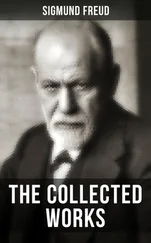I did not know that his name was J. J. van der Leeuw until afterwards. Once he spoke to me at the Professor’s bidding, about exchanging hours. That was a summer day in the big house outside the town, at Döbling, where the family moved for the hot months. It would have been a day late in June or early July 1933. The arrangement for receiving us there was more informal, and one did not have quite the same sense of authenticity or reality as in the Professor’s own home. However, I did not say good-bye to Vienna in the house of a stranger on its outskirts. I came back.
I told the Professor why I had come back. The Professor was seventy-seven at the time of our first sessions. I was forty-seven. Dr. van der Leeuw was considerably younger. He was known among them, the Professor told me, as the Flying Dutchman. He was an eminent scholar. He had come officially to study with the Professor with the idea of the application of the principles of psychoanalysis to general education, with the greater practical aim of international cooperation and understanding. He was wealthy, influential, well-born. He owned vast plantations in the Dutch East Indies and had traveled in India for the purpose of occult investigation. He had contacted a teacher or young devotee there, had been influenced by the Eastern teaching, but that had not satisfied him. He wanted to apply the laws of spiritual being to the acute problems of today. It seemed to me that he was the perfect man for the perfect job. The Professor had not told me that J. J. van der Leeuw was himself aware of a deeply rooted desire or subconscious tendency connected with his brilliant aviation. The Flying Dutchman knew that at any given moment, in the air — his element — he was likely to fly too high, to fly too quickly. “That was really what concerned me,” said the Professor. “I can tell you now that that was really what concerned us both.” The Professor added, “After he left, last time, I felt I had found the solution, I really had the answer. But it was too late.”
I said to the Professor, “I always had a feeling of satisfaction, of security when I passed Dr. van der Leeuw on the stairs or saw him in the hall. He seemed so self-sufficient, so poised — and you had told me about his work. I felt all the time that he was the person who would apply, carry on the torch — carry on your ideas, but not in a stereotyped way. I felt that you and your work and the future of your work were especially bequeathed to him. Oh, I know there is the great body of the Psycho-Analytical Association, research workers, doctors, trained analysts, and so on! But Dr. van der Leeuw was different. I know that you have felt this very deeply. I came back to Vienna to tell you how sorry I am.”
The Professor said, “You have come to take his place.”
I did not consciously think about the Flying Dutchman or connect him with my own work or weave him into my reveries. My own problems, my own intense, dynamic interest in the unfolding of the unconscious or the subconscious pattern, did not seem to include him. He was so personable, so presentable, apparently so richly intellectually and materially endowed. I envied him, I think, his apparently uncomplicated personality. He was an intellectual type but externalized, the diplomatic or even business type; one did not think of him as tortured or troubled; there seemed nothing of Sturm und Drang about him. He appeared scholarly, yes, but not in a bookish introverted sense. You would have said that his body fitted him as perfectly and as suavely as the grey or blue cloth that covered it; his soul fitted his body, you would have said, and his mind fitted his brain or his head; the forehead was high, unfurrowed; his eyes looked perceptive with a mariner’s blue gaze, the eyes were a shade off or a shade above blue-grey yet with that grey North Sea in them. Yes — cool, cold, perceptive yet untroubled, you would have said. When later I came to think of it, yes, then it did seem that he was mercurial, Mercury.
I do not think that the name of the winged messenger, Hermes of the Greeks, Mercury of the Romans, ever came up in my talks with the Professor, except once in a roundabout way when I had a dream sequence that included a figure from the famous Raphael Donner fountain in the Marktplatz. This is a very beautiful fountain with reclining figures of river gods, two women and two men. My dream was connected with a young man of my acquaintance in London; his name is not Brooks but his name does suggest streams and rivers so we may call him Brooks. I connected this young Mr. Brooks with the figure of the younger of the male river gods in my dream sequence. It was then that I said to the Professor that the reclining bronze fountain figure had certain affinities with the poised Bolognese Mercury. We agreed that the Raphael Donner figure was the more attractive and original of the two, but that if you should raise the reclining river god and stand him on his feet, he might faintly resemble the Mercury — or in reverse, set the Mercury down to lean on his elbow and he might almost take the place of the bronze fountain figure. It was in any case our Professor’s charming way to fall in with an idea, to do it justice but not to overstress unimportant details. For this seemed unimportant at the time.
Perhaps it is not very important now. It is interesting, however, to note in retrospect how the mind hedges away. I connected the Raphael Donner figure, and by implication the Mercury, with a charming but not very important young London acquaintance, while the actual personable image is there in Vienna and was there — had been there — reclining on this very couch, every hour just before my own session. As I say, I did not consciously think about Dr. van der Leeuw or weave him into my reveries. Nor did I think of him as Mercury, the Messenger of the Gods and the Leader of the Dead, after he crashed.
He was a stranger. I did not really know him. We had spoken once in the house at Döbling, outside Vienna. The Professor waved him across the large, unfamiliar drawing room. Dr. van der Leeuw bowed, he addressed me in polite, distinguished German, would the gnädige Frau object to altering her hour for one day, tomorrow? I answered him in English, I would not mind at all, I would come at four, he at five. He thanked me pleasantly in friendly English, without a trace of accent. That was the first and last time I spoke to the Flying Dutchman. We had exchanged “hours.”
The Professor was seventy-seven. His birthday in May was significant. The consulting room in the strange house contained some of his treasures and his famous desk. The room looked the same, except for the desk. Instead of the semicircle of priceless little objets d’art, there was a carefully arranged series of vases; each contained a spray of orchids or a single flower. I had nothing for the Professor. I said, “I am sorry, I haven’t brought you anything because I couldn’t find what I wanted.” I said, “Anyway, I wanted to give you something different.” My remark might have seemed a shade careless, a shade arrogant. It might have seemed either of these things, or both. I do not know how the Professor translated it. He waved me to the couch, satisfied or unsatisfied with my apparently casual regard for his birthday.
I had not found what I wanted so I did not give him anything. In one of our talks in the old room at Berggasse, we had gone off on one of our journeys. Sometimes the Professor knew actually my terrain, sometimes it was implicit in a statue or a picture, like that old-fashioned steel engraving of the Temple at Karnak that hung above the couch. I had visited that particular temple, he had not. But this time it was Italy; we were together in Rome. The years went forward, then backward. The shuttle of the years ran a thread that wove my pattern into the Professor’s. “Ah, the Spanish Steps,” said the Professor. “It was those branches of almond,” I said; “of all the flowers and the flower baskets, I remember those best.” “But,” said the Professor, “the gardenias! In Rome, even I could afford to wear a gardenia.” It was not that he conjured up the past and invoked the future. It was a present that was in the past or a past that was in the future.
Читать дальше











